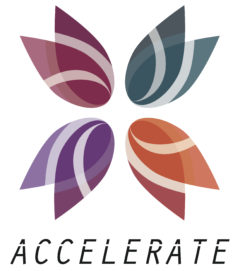In the frame of the H2020 project ACCELERATE, a series of webinars focused on radiation safety in large scale facilities will be held in September and October 2020. Each talk will be facilitated by an expert in the field, tackling different angles of the topic, ranging from:
- Radiation safety expert perspective: There will be a focus on various types of ionising radiation, which plays a vital role in research. Best practices in radiation protection and common challenges will also be tackled.
- Industry user perspective: Considering that many companies use radiation facilities for their research, it is necessary to be fully aware of how the research staff can be protected from the excess exposure and what impact radiations may have on samples and objects under investigation.
- Supplier perspective: It is crucial for equipment and/or component suppliers dealing with radiation facilities to be informed about the regulations and safety measures on site. This becoming increasingly important, since there are signs that there is a shift interpretation of regulation.
Webinar #1: ‘Radiation safety aspects of the user-oriented research at the Budapest Neutron Centre’
- Date and time: 23 September 2020
- Speaker: Dr. Zsolt KASZTOVSZKY (Nuclear Analysis and Radiography Department, Centre for Energy Research, Budapest).
Overview
In facilities working with ionizing radiation, it is very important to protect not only employees and visitors, but also the samples being studies to ensure they remain safe and undamaged.
In this first webinar, the speaker will discuss the risk of activation and other visible or non-visible damage when using various neutron-based methods. Safety measures put in place at the Budapest Research Reactor will also be presented. Examples will be given based on work on cultural heritage objects.
Register to the 1st webinar here. Read here the speaker’s abstract.
Webinar #2: ‘Radiation safety for particle accelerator – synergies between Research Infrastructures and Industry’
- Date and time: 07 October 2020
- Speaker: Dr. Christine DARVE (Engineering Scientist, European Spallation Source, Sweden).
Overview
Particle accelerators play an important role in many functions of today’s society, with over 30 000 accelerators in operation worldwide. Those accelerators can range from tools for discovery to radiotherapy. One of the main challenges to safely operate these tools is the use of radiation-hardened equipment and the compliance with stringent directives.
This webinar will address the safety aspects based on experiences gained in large scale worldwide particle accelerators.
Register to the 2nd webinar here. Read here the speaker’s abstract.
Webinar #3: ‘Conforming to radiation safety regulations, what you need to know when you supply into Research Infrastructures’
- Date and time: 21 October 2020
- Speaker: Dr. Christine DARVE (Engineering Scientist, European Spallation Source, Sweden).
Overview
As we face growing challenges in our society, science and industries are evolving. Many technological innovations are based on Research Infrastructure (RI) discoveries. To build and operate such RI, requires industries to supply state-of-the-art components following stringent regulations and resistant to large dose of radiation.
This webinar will address the conformance of the required components to be used in those severe environments.
Register to the 3rd webinar here.

